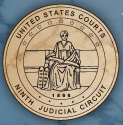 “Holy copyright law, Batman!” Although this sounds like Robin, it is actually a line from a federal appeals court opinion issued this week, holding that Batman’s iconic car is entitled to copyright protection. The U.S. Court of Appeals for the Ninth Circuit sided with DC Comics in its claim to a copyright interest in the Batmobile, ruling in DC Comics v. Towle that the automobile was sufficiently distinctive to be deemed a protectable character. DC Comics had sued defendant Mark Towle for, among other things, copyright infringement and trademark infringement, based on his sale of replicas of the car. Mark Towle’s Gotham Garage sold replicas of the Batmobile as it appeared in the 1966 television series featuring Adam West as Batman and the 1989 movie starring Michael Keaton for approximately $90,000.
“Holy copyright law, Batman!” Although this sounds like Robin, it is actually a line from a federal appeals court opinion issued this week, holding that Batman’s iconic car is entitled to copyright protection. The U.S. Court of Appeals for the Ninth Circuit sided with DC Comics in its claim to a copyright interest in the Batmobile, ruling in DC Comics v. Towle that the automobile was sufficiently distinctive to be deemed a protectable character. DC Comics had sued defendant Mark Towle for, among other things, copyright infringement and trademark infringement, based on his sale of replicas of the car. Mark Towle’s Gotham Garage sold replicas of the Batmobile as it appeared in the 1966 television series featuring Adam West as Batman and the 1989 movie starring Michael Keaton for approximately $90,000.
Towle argued that the Batmobile was not subject to copyright protection. Alternatively, Towle claimed that DC Comics did not own the copyright in the vehicle as it appeared in either production, because DC Batman comics had never featured Batmobile designs that looked exactly like those in the television series and movies.
“Pow! Boff! Thwack!” The three-judge panel delivered major blows to Towle’s arguments and ultimately sided with DC Comics. The Court of Appeals affirmed the District Court judgment that the Batmobile was protectable noting that the court had previously recognized “Eleanor,” a car in both Gone in 60 Seconds movies, as an “automotive character.” The court also rejected Towle’s argument that the vehicle was not protectable, because some depictions deviated from its “signature sleek ‘bat-like’ features.” In response, the court stated that although James Bond, Godzilla, and Batman have changed over time, they are entitled to copyright protection for they have “retained unique, protectable characteristics.” Furthermore, the court disagreed with Towle’s claim that DC Comics did not own a copyright interest in the Batmobile. The panel found that DC Comics retained the rights to derivative versions of the Batmobile when it licensed the right to make TV shows and movies to production companies.
To determine whether characters in comic books, television shows or movies are entitled to copyright protection, the court set forth a three-part test. First, the character must have “physical as well as conceptual qualities.” Also, the character must be “sufficiently delineated” so people recognize it as the same character across time. Third, the character has to be “especially distinctive” and “contain some unique elements of expression.”
Applying this test, the court found that the Batmobile was protectable under copyright law. “First, because the Batmobile has appeared graphically in comic books, and as a three-dimensional car in television series and motion pictures, it has ‘physical as well as conceptual qualities,’ and is thus not a mere literary character,” the court ruled. As for the second element, various distinct physical and conceptual qualities of the Batmobile make it recognizable whenever it appears. “[T]he Batmobile is almost always bat-like in appearance…[T]he Batmobile is a ‘crime-fighting’ car with sleek and powerful characteristics that allow Batman to maneuver quickly while he fights villains…Equally important, the Batmobile always contains the most up-to-date weaponry and technology,” the opinion stated. Finally, the court found that the third prong of the character analysis is met, given the Batmobile’s “status as Batman’s loyal bat-themed sidekick” and its “unique and highly recognizable name.”
The opinion concludes with a quote, noting that, “[a]s Batman so sagely told Robin, ‘In our well-ordered society, protection of private property is essential.’” The ruling does provide significant protections to copyright owners of comic book, TV, and movie characters. In this case, Towle will have to obtain permission from DC Comics to sell any more Batmobile replicas.
Cristina Carapezza is a 2L at Harvard Law School and a student in the Cyberlaw Clinic during the fall semester 2015.
